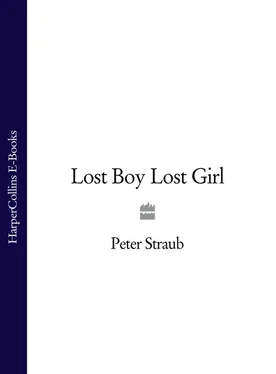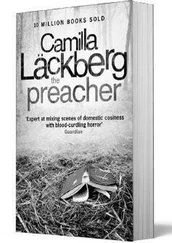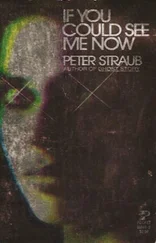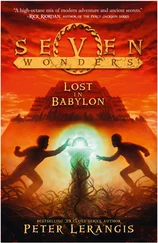PETER STRAUB
Lost Boy Lost Girl

Copyright Copyright About the Publisher
This is a work of fiction. All incidents and dialogue, and all characters, with the exception of some well-known historical and public figures, are products of the author’s imagination and are not to be construed as real. Where real-life historical figures and public figures appear, the situations, incidents and dialogues concerning those persons are entirely fictional and are not intended to depict actual events or to change the entirely fictional nature of the work. In all other respects, any resemblance to persons living or dead is entirely coincidental.
HarperCollins Publishers 1 London Bridge Street, London SE1 9GF
www.harpercollins.co.uk
First published in Great Britain by
HarperCollins Publishers 2003
First published in the USA by
Random House 2003
Copyright © Peter Straub 2003
Peter Straub asserts the moral right to
be identified as the author of this work
All rights reserved under International and Pan-American Copyright Conventions. By payment of the required fees, you have been granted the nonexclusive, nontransferable right to access and read the text of this e-book on-screen. No part of this text may be reproduced, transmitted, downloaded, decompiled, reverse engineered, or stored in or introduced into any information storage and retrieval system, in any form or by any means, whether electronic or mechanical, now known or hereinafter invented, without the express written permission of HarperCollins e-books.
HarperCollins Publishers has made every reasonable effort to ensure that any picture content and written content in this ebook has been included or removed in accordance with the contractual and technological constraints in operation at the time of publication.
Source ISBN: 9780007142309
Ebook Edition © AUGUST 2012 ISBN 9780007387960
Version: 2016-08-10
For Charles Bernstein and Susan Bee
There was set before me a mighty hill
And long days I climbed
Through regions of snow.
When I had before me the summit-view,
It seemed that my labours
Had been to see gardens
Lying at impossible distances.
– STEPHEN CRANE
What was at stake here, he thought, was the solidity of the world.
– TIMOTHY UNDERHILL, The Divided Man
Cover
Title Page
Dedication
Epigraph
Part One THE DEAD MOTHER
1
2
3
Part Two THE HOUSE ON MICHIGAN STREET
4
5
6
7
8
9
Part Three A RIP IN THE FABRIC
10
11
12
13
14
Part Four THE RED SKY
15
16
17
18
19
Part Five GARDENS AT IMPOSSIBLE DISTANCES
20
21
22
23
Keep Reading
Acknowledgements
About the Author
Praise
Also by the Author
Copyright
About the Publisher
Part One THE DEAD MOTHER
NANCY UNDERHILL’S DEATH had been unexpected, abrupt – a death like a slap in the face. Tim, her husband’s older brother, knew nothing more. He could scarcely be said really to have known Nancy. On examination, Timothy Underhill’s memories of his sister-in-law shrank into a tiny collection of snapshots. Here was Nancy’s dark, fragile smile as she knelt beside her two-year-old son, Mark, in 1990; here she was, in another moment from that same visit, snatching up little Mark, both of them in tears, from his baby seat and rushing from the dim unadorned dining room. Philip, whose morose carping had driven his wife from the room, sat glaring at the dried-out pot roast, deliberately ignoring his brother’s presence. When at last he looked up, Philip said, ‘What?’
Ah Philip, you were ever a wonder. The kid can’t help being a turd , Pop said once. It seems to be one of the few things that make him feel good .
One more of cruel memory’s snapshots, this from an odd, eventful visit Tim had paid to Millhaven in 1993, when he flew the two and a half hours from La Guardia on the same carrier, and from all available evidence also the same craft, as this day: Nancy seen through the screen door of the little house on Superior Street, beaming as she hurried Tim-ward down the unlighted hallway, her face alight with the surprise and pleasure given her by the unexpected arrival on her doorstep of her brother-in-law (‘famous’ brother-in-law, she would have said). She had, simply, liked him, Nancy had, to an extent he’d understood only at that moment.
That quietly stressed out little woman, often (Tim thought) made wretched by her husband and sewn into her marriage by what seemed determination more than love, as if the preparation of many thousands of daily meals and a succession of household ‘projects’ provided most of the satisfaction she needed to keep her in place. Of course Mark must have been essential; and maybe her marriage had been happier than Tim imagined. For both their sakes, he hoped it had been.
Philip’s behavior over the next few days would give him all the answers he was likely to get. And with Philip, interpretation was always necessary. Philip Underhill had cultivated an attitude of discontent ever since he had concluded that his older brother, whose flaws shone with a lurid radiance, had apparently seized from birth most of the advantages available to a member of the Underhill clan. From early in his life, nothing Philip could get or achieve was quite as good as it would have been but for the mocking, superior presence of his older brother. (In all honesty, Tim did not doubt that he had tended to lord it over his little brother. Was there ever an older brother who did not?) During all of Philip’s adult life, his grudging discontent had been like a role perfectly inhabited by an actor with a gift for the part: somewhere inside, Tim wanted to believe, the real Philip must have lived on, capable of joy, warmth, generosity, selflessness. It was this inner, more genuine self that was going to be needed in the wake of Nancy’s mysterious death. Philip would need it for his own sake if he were to face his grief head-on, as grief had to be faced; but more than that, he would need it for his son. It would be terrible for Mark if his father somehow tried to treat his mother’s death as yet another typical inconvenience different from the rest only by means of its severity.
From what Tim had seen on his infrequent returns to Millhaven, Mark seemed a bit troubled, though he did not wish to think of his nephew in the terms suggested by the word ‘troubled.’ Unhappy, yes; restless; unfocused; afflicted with both a budding arrogance and what Tim had perceived was a good and tender heart. A combination so conflicted lent itself naturally to restlessness and lack of focus. So, as far as Tim remembered, did being fifteen years old. The boy was trim and compact, physically more like his mother than his father: dark-haired and dark-eyed – though presently his hair was clipped so short its color was merely some indeterminate shade of darkness – with a broad forehead and a narrow, decisive chin. Two steel rings rode the outer ridges of his right ear. He slopped around in big T-shirts and oversized jeans, alternately grimacing and grinning at the music earphoned into his head from an improbably tiny device, an iPod or an MP3 player. Mark was devoted to a strange cross section of contemporary music: Wilco, the Magnetic Fields, the White Stripes, the Strokes, Yo La Tengo, Spiritualized, and the Shins, but also Bruce Springsteen, Jimmy LaFave, and Eminem, whom he seemed to appreciate in an ironic spirit. His ‘pin-up girl,’ he had informed his uncle in an e-mail, was Karen O of the Yeah Yeah Yeahs.
Читать дальше













